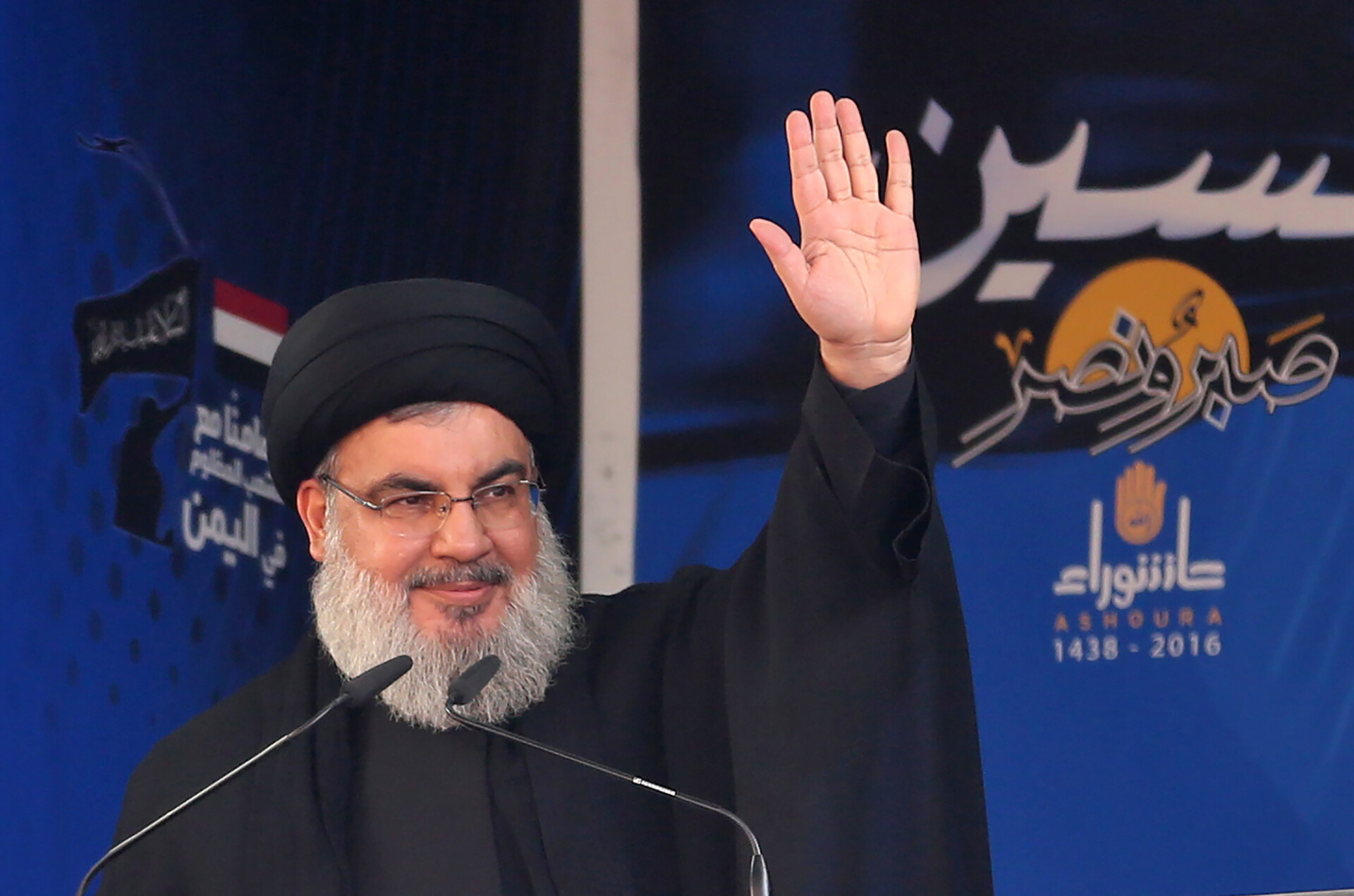Hezbollah has now confirmed that its secretary-general, Hassan Nasrallah, was killed in the Israeli airstrikes on the group’s headquarters in Dahiyeh yesterday.
Nasrallah’s demise is the culmination of an Israeli campaign, particularly intense over the past week, to cripple Hezbollah’s military and terrorism capacities. It has brought Hezbollah to its most vulnerable condition since its creation.
Contrary to the myth-making that Hezbollah emerged in 1982 as a “resistance” organisation against Israel’s invasion of Lebanon and became a “proxy” of Iran, in reality the group was created earlier. Indeed, it comprises an integral unit of the Islamic Revolutionary Guards Corps (IRGC), the vanguard of the Islamic Revolution that rules Iran. Nasrallah’s life history testifies to this.
Ayatollah Ruhollah Khomeini forged a jihadist cadre on Lebanese territory in the late 1970s, with assistance from the Palestine Liberation Organisation (PLO), and Nasrallah was part of this milieu. Some of these jihadists went back to Iran to lead the Revolution in 1978-79 and were labelled the IRGC. Those who stayed in Lebanon officially took the name Hezbollah in 1985.
Rising to the top of Hezbollah in 1992, Nasrallah’s department of the IRGC was the one Tehran often used in its international murder spree that decade, which included bombing Jewish targets as far away as Argentina and assassinating Iranian dissidents in Europe. The nature of the Islamic Revolution, a transnational jihadist network that recognises neither nationality nor borders, can be seen in Nasrallah having a senior IRGC officer, Abbas Nilforoushan, alongside him when he was killed.
For all the anger in the region against Israel over Gaza, many are celebrating Nasrallah’s demise, especially in Syria, where Hezbollah led the IRGC’s international jihad to rescue the Iran-dependent tyrant Bashar al-Assad. On the other hand, there is sorrow: the rapidity and relative ease of Israel’s decimation of Hezbollah demonstrates how little it would have taken, and how low the cost would have been, to spare the Syrians so much death and destruction.
The leading candidates to replace Nasrallah are Naim Qassem, the deputy secretary-general, and Hashem Safieddine, the head of Hezbollah’s Executive Council. But it is unclear if either will still be alive once Israel’s offensive has finished. Thousands of Hezbollah’s troops were incapacitated by Mossad’s exploding pagers and radios operation, and Israel’s relentless decapitation strikes have devastated Hezbollah’s leadership.
In just the last week, Israel has killed Ali Karaki, the effective military commander of Hezbollah after the rest of the Jihad Council (military executive committee) were eliminated; Talal Hamiyah, the leader of Hezbollah’s external operations; Ibrahim Qubaisi, the missile commander; and Muhammad Surur, the head of the drones unit.
Israel has said that returning the 70,000 people displaced from the north by Hezbollah’s missile attacks is a core war aim. That is only possible if Hezbollah is pushed away from the border. Eighteen years of diplomacy has failed to demilitarise the border area — and even with continued Israeli military pressure from the outside, it seems unlikely for political reasons Hezbollah will back down. If Israel chooses to secure this outcome by invading Lebanon, the ground has been well-prepared.
Hezbollah’s command-and-control infrastructure is in tatters. But the Iranian control of Syria gives Hezbollah significant strategic depth and, despite the recent losses, Hezbollah is a very large organisation that is deeply woven into Lebanon’s Shia population, the largest sect in the country.
With or without an invasion, however, the mystique around Hezbollah has been broken. Its prestige, built on “resistance” to Israel, has been irreparably damaged — not least by the revelation of how extensively Israeli spies have infiltrated its ranks. Hezbollah’s ability to dominate Lebanon is open to challenge in a way it has not been for decades. The end could well be nigh for the terrorist group.










Join the discussion
Join like minded readers that support our journalism by becoming a paid subscriber
To join the discussion in the comments, become a paid subscriber.
Join like minded readers that support our journalism, read unlimited articles and enjoy other subscriber-only benefits.
Subscribe